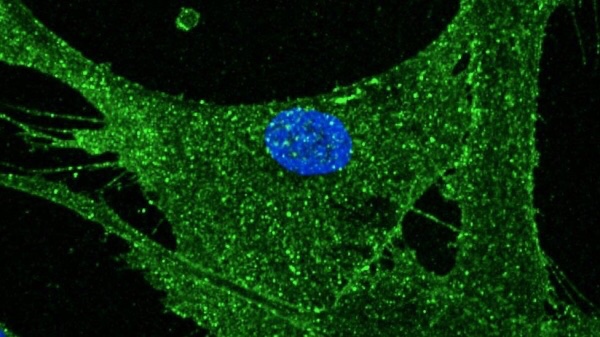Scientists have developed a new method for rejuvenating skin cells, claiming to be able to turn back the hands of time by 30 years.

This magnified skin cell is from a 53-year old woman but it looks and behaves like one that is 30 years younger
For decades, it has been a dream of both women and men. Scientists claim to have discovered a mechanism to slow down the ageing of human skin.
Researchers in Cambridge claim to have reprogrammed skin cells from persons as young as 38 and as old as 53 to make them 30 years younger.
The technology slows down the ageing process more than prior reprogramming techniques while avoiding cell damage.
According to the researchers, they are even able to partially restore functions lost in elderly cells.
While the study is still in its early stages, the discoveries have the potential to revolutionise regenerative medicine, according to the researchers, especially if they can be repeated in different cell types and tissues of the body.
In tests, ageing cells resembled skin cells known as fibroblasts, which make collagen, a protein that keeps the body together and strong.
With age, the number of fibroblasts in the human epidermis diminishes. As we grow, these cells become shrivelled as well.
According to the researchers, the new results could lead to a focused strategy to treating ageing, which could ‘revolutionize’ regenerative medicine.
The new study was conducted at the Babraham Organization, a Cambridge-based life sciences research centre, and was published in the journal eLife.
‘Our findings represent a substantial leap in our understanding of cell reprogramming,’ said Dr Diljeet Gill of the Babraham Institute.
Our researchers were on @BBCr4today this morning to talk about a new study around rejuvenating skin cells from @ReikLab
— Babraham Institute (@BabrahamInst) April 8, 2022
Skip to 52:23 to hear from lead author on this study Dr @Diljeet_Gill
Listen in here: https://t.co/0BEwdJglmR
‘We’ve demonstrated that cells can be regenerated without losing their function, and that rejuvenation attempts to resurrect ancient cells.’
The fact that we were able to reverse ageing symptoms in genes connected to diseases is really promising for the future of our research.’


